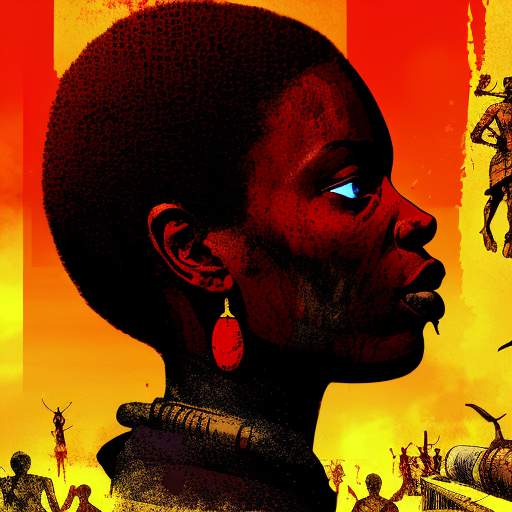One-line Summary:
“The Book of Negroes” is a powerful historical novel that follows the life of Aminata Diallo, a young girl who is captured in Africa and sold into slavery in America, as she navigates through the hardships of slavery, the American Revolution, and her quest for freedom.
The Journey from Africa to America:
“The Book of Negroes” begins in the late 18th century in West Africa, where Aminata Diallo, a bright and curious young girl, is living a peaceful life with her family. However, her world is shattered when she is captured by slave traders and forced onto a slave ship bound for America. Throughout the treacherous journey, Aminata witnesses the horrors of the Middle Passage, where countless Africans perish due to disease, starvation, and brutality.
A Life in Slavery:
Upon arrival in America, Aminata is sold to a plantation owner in South Carolina. She is subjected to the harsh realities of slavery, enduring physical and emotional abuse, witnessing the separation of families, and experiencing the dehumanizing treatment of enslaved people. Despite the unimaginable hardships, Aminata’s resilience and intelligence enable her to survive and maintain her sense of self.
The American Revolution and Quest for Freedom:
As the American Revolution unfolds, Aminata finds herself caught in the crossfire between the British and the American rebels. She seizes the opportunity to escape slavery by joining the British forces, who promise freedom to enslaved people who fight for their cause. Aminata serves as a scribe, documenting the names of Black loyalists who seek refuge in Nova Scotia, Canada, in a document called “The Book of Negroes.”
In Nova Scotia, Aminata faces new challenges as she struggles to build a life for herself and her child. She encounters racism, discrimination, and the constant threat of re-enslavement. Determined to secure a better future, she becomes involved in the abolitionist movement and fights for the rights of Black people.
Key Takeaways:
- Aminata Diallo’s journey from Africa to America highlights the brutal realities of the transatlantic slave trade and the resilience of enslaved people.
- The novel explores the complexities of identity and the struggle to maintain one’s cultural heritage in the face of oppression.
- “The Book of Negroes” sheds light on the often-overlooked contributions of Black loyalists during the American Revolution and their fight for freedom.
- The story emphasizes the importance of education, literacy, and documentation as tools for empowerment and resistance.
- Aminata’s journey towards freedom serves as a powerful testament to the strength of the human spirit and the enduring quest for justice.
“In this world, a man, himself, is nothing. And there ain’t no world but this one.”
In conclusion, “The Book of Negroes” is a poignant and gripping novel that delves into the harrowing experiences of Aminata Diallo as she navigates the horrors of slavery, the complexities of the American Revolution, and her relentless pursuit of freedom. Through Aminata’s story, Lawrence Hill sheds light on the resilience, strength, and determination of enslaved people, while also highlighting the importance of education, identity, and the fight for justice. This powerful narrative serves as a reminder of the atrocities of the past and the ongoing struggle for equality and human rights.












